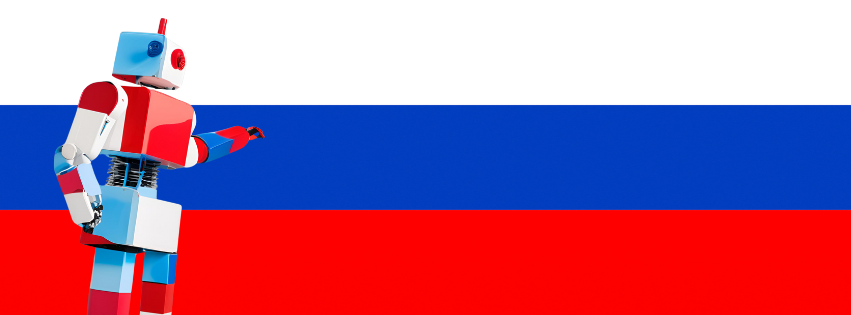In recent years, the Russian Federation has embarked on an ambitious journey to revolutionize its digital landscape. Central to this effort are four key initiatives: the National Programme “Digital Economy”, the National Strategy for AI Development, and the Technical Committee on Standardization “Artificial Intelligence”, as well as law named as Experimental legal regimes in the field of digital innovations in the Russian Federation (the “Law-258-FZ”). These programs collectively aim to establish a robust framework for the development and implementation of AI technologies, ensuring Russia’s competitive edge in the global digital economy.
The National Programme for Digital Economy laid the foundation for creating a dynamic environment for growth of technology such as that of Artificial Intelligence in 2018. Following this programme, in the year 2019, Russia took another pivotal step with the adoption of the National Strategy for AI Development, under Presidential Decree No. 490. This strategy aims to enhance state programs, projects, and strategic documents of state-owned corporations supporting AI development. The strategy underscores research in algorithms and mathematical methods, software development, and the collection, storage, and processing of data for AI R&D.
To ensure the quality and efficiency of AI technologies, the Technical Committee on Standardisation “Artificial Intelligence” was established in the later half of 2019 by the Federal Agency on Technical Regulating and Metrology (Rosstandart). This committee, created in collaboration with the Russian Venture Company, is tasked with developing standards for AI, ensuring the quality of AI systems, and promoting the implementation of AI technologies in education and other sectors.
One of the notable actions taken by the committee is announcing the NATIONAL STANDARD OF THE RUSSIAN FEDERATION : AIRPORTS. TECHNICAL MEANS OF INSPECTION (Methodology for determining the quality indicators of recognition of illegal investments using shadow X-ray images – GOST R 58777-2019) The requirements of this standard apply for the development of programs and testing methods for automatic analysis systems of shadow images and methods for testing shadow image analysis algorithms). These standards focus on monitoring human behavior, predicting intentions, and improving inspection systems at airports.
On September 30, 2023, the Russoft Association, the Chamber of Indo-Russian Technological Cooperation (Chamber for Indo Russo Technology Collaboration, CIRTC) and the Russian Technical Committee No. 164 of the Rosstandart of the Russian Federation “Artificial Intelligence” signed two memoranda of intent for cooperation aimed at developing relations between Russia and India in the IT region. One of the documents concerns the standardization of
On February 15, 2024, the President of the Russian Federation issued Decree No. 124 introducing amendments to Decree No. 490 on the development of artificial intelligence in the Russian Federation and to the National Strategy for the development of artificial intelligence for the period until 2030 (the Decree). In particular, the Decree includes several new definitions such as ‘dataset’, ‘large generative models’, ‘artificial intelligence model’, and ‘strong artificial intelligence’. Furthermore, the Decree provides, among others, new provisions such as: the act to ensure, the inclusion of the federal project ‘Artificial Intelligence’ in the national project for the formation of a data economy for the period until 2030 and, the increase of the availability of infrastructure necessary for the development of artificial intelligence (AI).
Russia’s multifaceted approach to AI regulation and development through these three key initiatives demonstrates a strong commitment to creating a thriving digital ecosystem. By fostering local innovation, improving infrastructure, and establishing robust standards, the Russian Federation is well-positioned to harness the transformative potential of AI. These efforts not only aim to secure Russia’s place in the global digital economy but also ensure that the benefits of AI development are widely accessible and sustainable.

